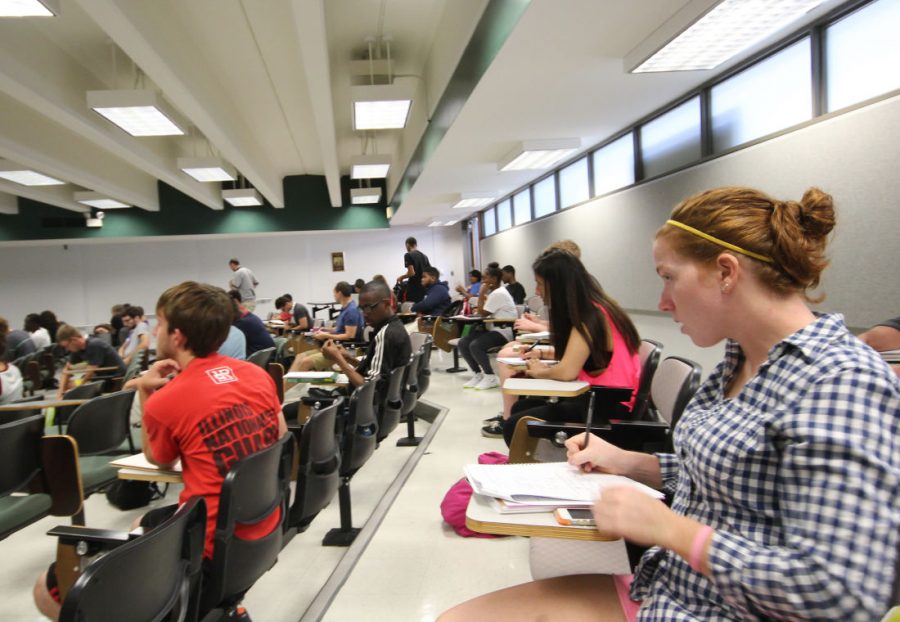Gen. ed recommended changes going to provost
September 4, 2014
Curriculum changes for general education and bachelor’s degree programs may be implemented as soon as fall 2015, as recommendations were presented at Faculty Senate Wednesday.
Progressive Learning in Undergraduate Studies, a task force assembled in spring 2013, consists of a group of faculty and students who have been working to make adjustments in NIU’s general education curriculum to “create an integrated learning environment, connect students to their peers across campus and encourage cross-disciplinary thinking and intellectual advancement,” according to an executive summary provided on the Faculty Senate agenda.
Associate Vice Provost Michael Kolb and associate music professor Ed Klonoski presented PLUS recommendations that would subtract 11 credit hours from a student’s bachelor degree requirements if students complete their general education at NIU, enroll in general education or major courses with writing requirements and take a career success course in their respective major degree program.
PLUS recommends four high-impact practices mandatory for students pursuing bachelor’s degrees. Enrolling in two upper-division courses concentrated on writing would be required in order to increase the amount of writing students do.
First-year experience courses, like UNIV 101/201, would be mandatory and modified to “infuse more academic content,” Kolb said. Engaged learning courses and co-curricular practices, such as study abroad, research and internships, would me required. A course to promote career success, dubbed UNIV 301, would be added to student course requirements.
PLUS’ general education recommendation is divided into two categories: foundational studies and knowledge domain studies, as opposed to the current program, which is divided into core competencies and distributive studies.
Foundational studies would break into quantitative literacy, oral communication, 100-level writing composition and 200-level writing composition, which would replace the current core competencies program of math, COMS 101, Rhetorics and Composition I and Rhetoric and Composition II.
Knowledge domain studies would divide into creativity and critical analysis, nature and technology, society and culture and a domain elective as opposed to the current distributive studies’ program of humanities and arts, science and math, social sciences and interdisciplinary.
Associate sociology professor Robin Moremen said she was concerned for current students and advisers who would have limited time to adjust to the curriculum changes.
“Will existing students be grandfathered in? I’m concerned that the confusion that this may bring about, at least from an advising standpoint, could have a negative impact on student career success …,” Moremen said.
Klonoski said the PLUS task force would prefer the implementation of any changes be made in stages.
These recommendations are tentative and may undergo changes after input by the provost, curriculum committees and the public is received, Kolb said. PLUS plans to meet with the provost and hear public comment on the recommendations this month. By November, curriculum committees will evaluate the recommendations and the first stage implementation of the final recommendations will be made next fall.
Faculty Senate President Bill Pitney encouraged Faculty Senate members to review the information provided by PLUS in order to continue a discussion at the Oct. 1 Faculty Senate meeting.







